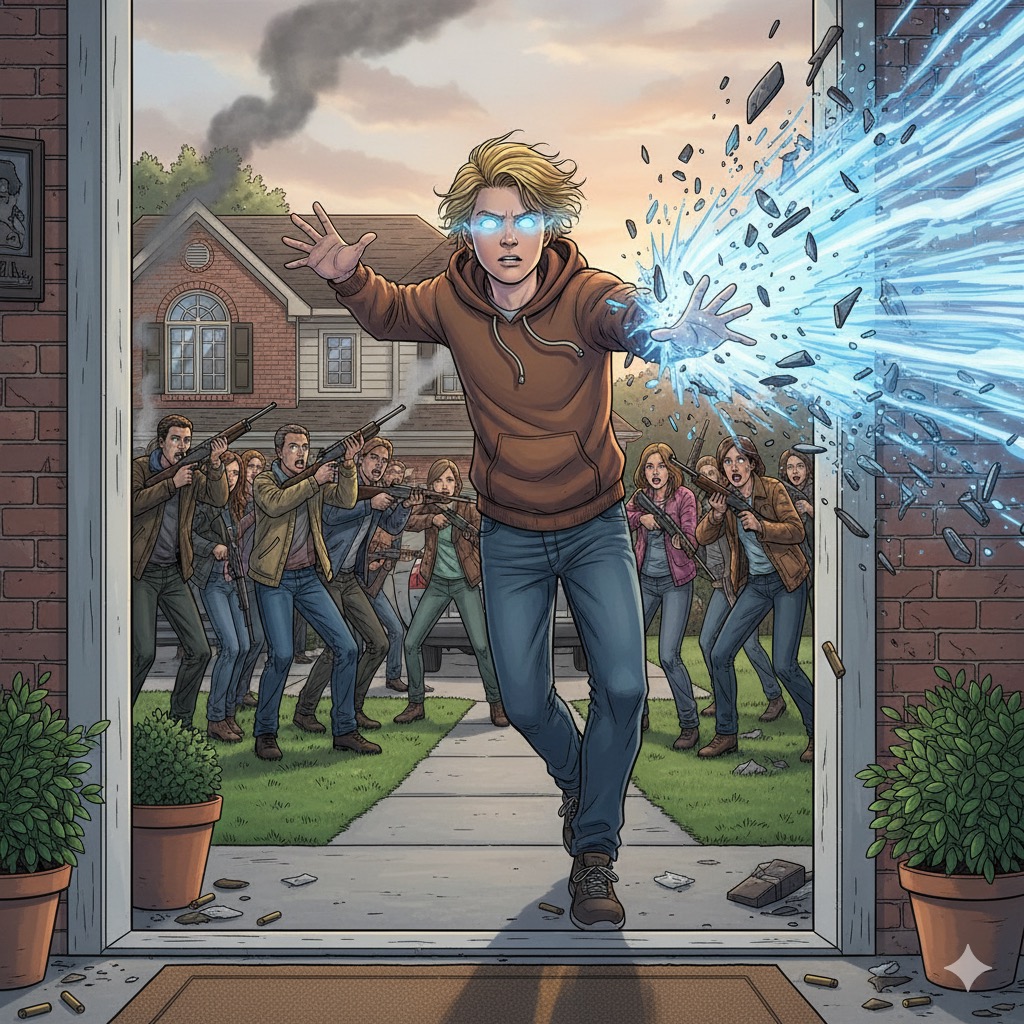In the shadowy world of The Gifted, control is the ultimate currency, and the episode “Exodus” introduces a terrifying new instrument of it: Hyper-Cortisone D. This is not a cure, but a chemical cage. A substance designed to forcibly stabilize mutant powers, it represents the establishment’s deepest desire: not to eliminate mutants, but to neuter them, to render their beautiful, dangerous gifts docile and manageable. The terrifying subtext is its illicit manufacture—a dark parallel to the establishment’s sanctioned version, developed by entities like the private military contractors. In this new arms race, the most critical calculation is not the ethics, but the dosage.
“Exodus” rips away any pretense of the Sentinel Services’ legitimacy, revealing the organization not as noble protectors but as a fanatical, state-sanctioned inquisition. Their solution to the “mutant problem” is a chilling echo of the darkest chapters of history: mass relocation to “Quarantine Bay,” a gulag by any other name. To justify this, they weaponize the law, officially designating the Mutant Underground as a terrorist organization. This is no mere plot point; it is a direct and brutal allegory to modern authoritarianism, mirroring Russia’s FSB labeling Jehovah’s Witnesses as terrorists for the “crime” of practicing their faith. The message is clear: dissent is terrorism. Existence is a threat.
The episode masterfully exposes the grotesque machinery of this oppression. The Sentinel Services’ investigation is a digital witch hunt, a terrifyingly efficient data-mining operation where lives are reduced to algorithms. They feed all their intelligence into models, refining their methods in a cold, recursive loop of persecution, accounting for “error” not to ensure justice, but to ensure total capture. Their ruthlessness knows no bounds, exemplified by the brutal sacrifice of Reed Strucker—erasing his life, making him a fugitive to maintain his cover. In their world, truth is the most disposable asset.
But the true, gut-wrenching horror of “Exodus” is not found in a sterile data center; it is on a quiet suburban street. The truth finally comes home, and it wears the face of a neighbor. A mob, whipped into a pious frenzy, descends upon the home of Caitlin Strucker’s brother, intent on executing her and her mutant children. The most chilling detail is not the violence, but the source: these mutant-hating rednecks are church-goers, a stark reminder that the cross has often been wielded as a bludgeon, a point hammered home by the uncomfortable historical nod to the Catholic Church’s support of Hitler. The community doesn’t stand against the mob; they are the mob.


Amidst this darkness, the episode explores love’s twisted, desperate power. It is not a pure, saving grace but a weapon and an illusion. Thunderbird’s girlfriend, Sage, possesses the devastating ability to fabricate love, to implant false memories of devotion. In the climactic escape, Blink’s heroic act—tearing open a portal to save her friends—is born not from her own courage, but from a love that was never real. It is a beautiful, heartbreaking lie, a necessary deception to spark a genuine act of salvation. This is the world they now inhabit: even love must be weaponized to survive.

Looming over it all is the specter of the private military-industrial complex—the unseen architects of this nightmare. These are the faceless corporations that invent terrifying technologies, the kind that craft tic-tac UFOs capable of impossible, Mach 20 speeds. They are the real power, developing the tools and the models that allow fanatics like the Sentinel Services to execute their pogroms with cold, calculated precision.
“Exodus” is more than an episode; it is a declaration. It asserts that the greatest monsters are not the ones with powers, but the ones in uniforms, the ones in pews, and the ones in boardrooms, all conspiring to build a future where difference is a disease and freedom is the only thing that must be quarantined.